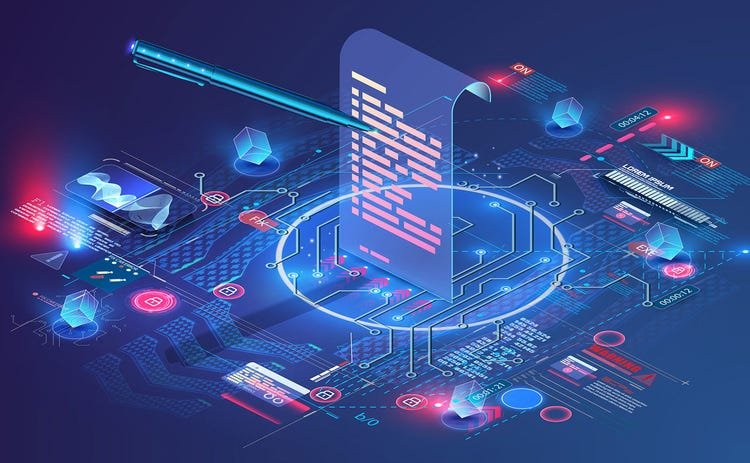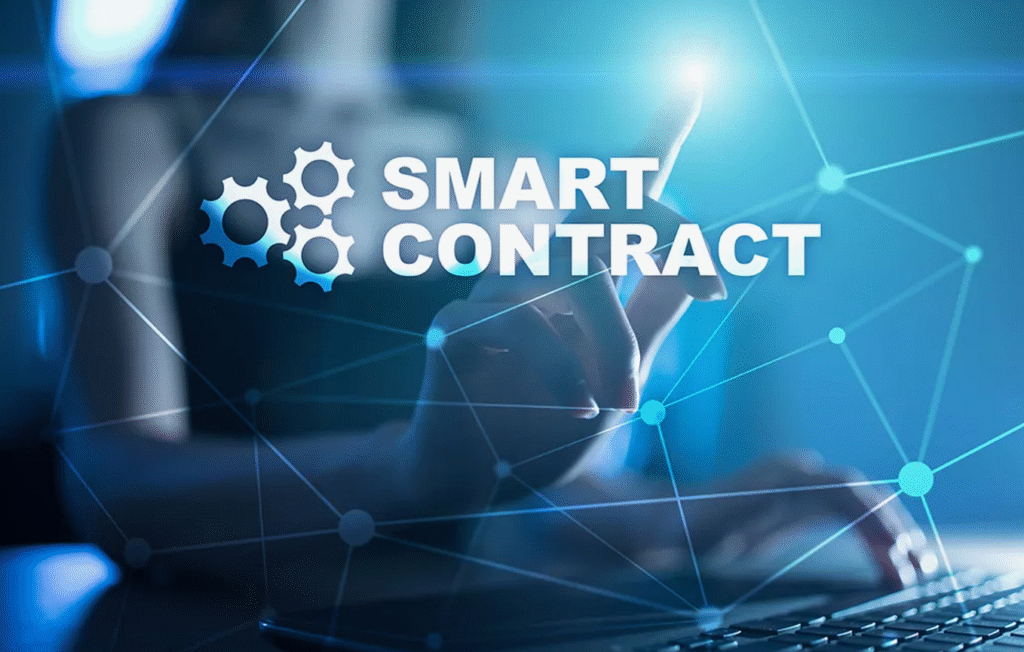The blockchain revolution has created an unprecedented demand for skilled developers who can create secure, efficient smart contracts. Smart contract development training has become one of the most sought-after educational pathways in the technology sector, offering professionals the opportunity to enter a rapidly expanding field with immense earning potential. Whether you’re a seasoned programmer looking to transition into blockchain technology or a newcomer eager to build a career in decentralized applications, comprehensive smart contract development training provides the foundation you need to succeed in this dynamic industry.
Smart contracts represent the backbone of decentralized finance (DeFi), non-fungible tokens (NFTs), and countless blockchain applications that are reshaping how we interact with digital assets and conduct business online. The complexity and security requirements of these self-executing contracts demand specialized knowledge and practical experience that only structured training programs can provide.
Smart Contract Fundamentals
Before diving into advanced smart contract development training, it’s crucial to understand what smart contracts actually are and why they’ve become so integral to blockchain ecosystems. Smart contracts are self-executing programs that automatically enforce agreement terms without requiring intermediaries. These digital contracts run on blockchain networks, most commonly Ethereum, and operate according to predetermined conditions coded directly into the contract.
The revolutionary aspect of smart contracts lies in their ability to eliminate trust issues between parties. Once deployed on a blockchain, these contracts become immutable and transparent, executing automatically when specific conditions are met. This functionality has enabled the creation of decentralized autonomous organizations (DAOs), automated market makers (AMMs), and complex financial instruments that operate without traditional banking infrastructure.
Key Components of Smart Contract Architecture
Smart contract development training programs typically begin by teaching students about the fundamental components that make these programs function effectively. Understanding blockchain architecture forms the foundation of successful smart contract development. Students learn about distributed ledgers, consensus mechanisms, and how transactions are validated across network nodes.
Programming logic represents another critical component covered in comprehensive training programs. Smart contracts require precise coding to handle various scenarios, edge cases, and potential security vulnerabilities. Training courses emphasize the importance of writing clean, efficient code that minimizes gas costs while maximizing functionality and security.
Security protocols receive significant attention in quality smart contract development training because vulnerabilities in smart contracts can lead to substantial financial losses. Historical incidents like the DAO hack and various DeFi exploits serve as case studies demonstrating the importance of rigorous security practices and thorough testing procedures.
Essential Programming Languages for Smart Contract Development

Solidity: The Foundation Language
Solidity stands as the most important programming language for smart contract development training. This high-level, object-oriented language was specifically designed for writing smart contracts on the Ethereum Virtual Machine (EVM). Training programs dedicate substantial time to Solidity because it powers the vast majority of smart contracts currently deployed on Ethereum and EVM-compatible networks.
Solidity syntax resembles JavaScript and C++, making it accessible to developers with experience in these languages. However, smart contract development requires understanding unique concepts like gas optimization, storage patterns, and security considerations that don’t exist in traditional programming environments. Quality smart contract development training programs provide hands-on experience with Solidity through progressively complex projects that build practical skills.
Alternative Programming Languages
While Solidity dominates the smart contract landscape, comprehensive smart contract development training also covers alternative languages used on different blockchain platforms. Rust has gained popularity for developing smart contracts on Solana and other high-performance blockchains. The language’s emphasis on memory safety and performance makes it ideal for applications requiring high throughput and low latency.
Vyper represents another important language covered in advanced training programs. Designed as a more secure alternative to Solidity, Vyper prioritizes simplicity and auditability. Its Python-like syntax appeals to developers familiar with data science and machine learning applications who want to transition into blockchain development.
Comprehensive Training Program Structure
Beginner-Level Curriculum
Entry-level smart contract development training typically begins with blockchain fundamentals and basic programming concepts. Students learn about distributed systems, cryptographic principles, and the economic incentives that make blockchain networks secure and functional. This foundation ensures that developers understand the environment in which their smart contracts will operate.
Basic Solidity programming forms the core of beginner curricula. Students start with simple contracts that demonstrate fundamental concepts like variables, functions, and control structures. Early projects might include creating basic tokens, implementing simple voting systems, or building rudimentary decentralized applications that interact with smart contracts.
Development environment setup receives significant attention in beginner programs. Students learn to use essential tools like Remix IDE, Hardhat, and Truffle Suite. Understanding how to deploy contracts to test networks, interact with deployed contracts, and debug common issues prepares students for real-world development scenarios.
Intermediate Training Components
Intermediate smart contract development training focuses on building more complex applications and understanding advanced Solidity features. Students learn about inheritance, libraries, and design patterns that enable code reusability and maintainability. Projects at this level often involve creating ERC-20 tokens, implementing multi-signature wallets, or building simple DeFi protocols.
Security best practices become increasingly important at the intermediate level. Training programs cover common vulnerabilities like reentrancy attacks, integer overflow issues, and front-running exploits. Students learn to use security analysis tools and implement protective measures that prevent these attacks.
Integration with frontend applications represents another crucial intermediate skill. Students learn to connect smart contracts with web applications using libraries like Web3.js and Ethers.js. This integration knowledge enables developers to create complete decentralized applications that provide user-friendly interfaces for complex smart contract functionality.
Advanced Professional Development
Advanced smart contract development training prepares students for senior developer roles and specialized blockchain applications. Curriculum at this level covers complex topics like proxy patterns for upgradeable contracts, gas optimization techniques, and advanced security audit procedures.
Students work on sophisticated projects that mirror real-world applications. These might include building automated market makers, implementing lending protocols, or creating complex governance systems for DAOs. Such projects require integrating multiple smart contracts, handling complex state management, and optimizing for both security and efficiency.
Professional development aspects of advanced training include code review practices, documentation standards, and collaborative development workflows. Students learn to work with version control systems, implement continuous integration pipelines, and contribute to open-source blockchain projects.
Industry-Relevant Training Methodologies
Hands-On Project-Based Learning
The most effective smart contract development training programs emphasize practical, project-based learning approaches. Rather than focusing solely on theoretical knowledge, these programs guide students through building increasingly complex applications that demonstrate real-world utility. This methodology ensures that graduates possess portfolio-worthy projects that showcase their capabilities to potential employers.
Project-based learning also exposes students to the iterative development process common in blockchain projects. Students experience the cycle of planning, implementing, testing, and refining smart contracts based on user feedback and changing requirements. This experience proves invaluable when working on professional blockchain development teams.
Collaborative Learning Environments
Modern smart contract development training leverages collaborative learning environments that simulate professional development settings. Students work in teams to tackle complex challenges, learning to communicate technical concepts effectively and coordinate their efforts with other developers, designers, and project managers.
Code review exercises form an important component of collaborative learning. Students learn to critique each other’s work constructively, identify potential security vulnerabilities, and suggest improvements. These skills translate directly to professional environments where code quality and security are paramount.
Also Read: Ethereum Blockchain Development Course Complete Guide to Smart Contract Programming 2025
Career Opportunities and Market Demand

Growing Industry Demand
The blockchain industry’s explosive growth has created unprecedented demand for skilled smart contract developers. Smart contract development training graduates find opportunities across various sectors, including traditional finance companies exploring DeFi integration, technology startups building blockchain applications, and established corporations implementing supply chain transparency solutions.
Compensation for smart contract developers consistently ranks among the highest in the technology sector. Entry-level positions often start at salaries significantly above traditional software development roles, reflecting the specialized nature of the skills and the high demand for qualified professionals.
Diverse Career Paths
Smart contract development training opens doors to various specialized career paths within the blockchain ecosystem. Security auditors focus on identifying vulnerabilities in smart contracts and blockchain protocols. These professionals command premium rates due to the critical importance of their work and the specialized knowledge required.
DeFi protocol developers represent another high-demand specialization. These professionals design and implement complex financial instruments that operate entirely on blockchain networks. Their work requires deep understanding of both smart contract development and traditional financial markets.
Freelancing and Consulting Opportunities
Many smart contract development training graduates pursue freelancing or consulting careers, capitalizing on the project-based nature of much blockchain development work. Independent contractors often work with multiple clients simultaneously, building diverse portfolios while commanding higher hourly rates than traditional employees.
The global nature of blockchain projects means that skilled developers can work with clients worldwide, accessing opportunities regardless of geographic location. This flexibility appeals to many professionals seeking location independence while building expertise in cutting-edge technology.
Choosing the Right Training Program
Accreditation and Industry Recognition
When selecting smart contract development training, prospective students should prioritize programs with strong industry connections and recognition. Programs developed in partnership with established blockchain companies or endorsed by industry leaders typically provide more relevant, up-to-date curricula that reflect current market needs.
Instructor credentials play a crucial role in program quality. The most valuable smart contract development training programs feature instructors with substantial real-world experience building and deploying smart contracts in production environments. These professionals bring practical insights that purely academic instructors cannot provide.
Curriculum Comprehensiveness
Comprehensive smart contract development training programs balance theoretical knowledge with practical skills development. Students should look for curricula that cover not only programming techniques but also security practices, testing methodologies, and deployment procedures. Programs that integrate business and economic concepts help developers understand the commercial context of their technical work.
Support services and mentorship opportunities significantly enhance the learning experience. Programs that provide access to experienced mentors, career counseling, and job placement assistance offer additional value that can accelerate career development for graduates.
Learning Format Flexibility
Modern smart contract development training programs offer various learning formats to accommodate different learning styles and schedule constraints. Self-paced online programs provide flexibility for working professionals, while intensive bootcamp formats offer immersive experiences that can accelerate skill development.
Hybrid programs that combine online learning with in-person workshops or mentorship sessions often provide the best of both worlds. These programs offer flexibility while maintaining the personal connection and immediate feedback that enhance learning effectiveness.
Future Trends in Smart Contract Development
Emerging Technologies Integration
The evolution of blockchain technology continues to create new opportunities for smart contract development training graduates. Layer 2 scaling solutions like Optimism and Arbitrum require developers who understand both the underlying Ethereum infrastructure and the specific optimization techniques needed for these environments.
Cross-chain interoperability represents another emerging area requiring specialized skills. As the blockchain ecosystem becomes increasingly multi-chain, developers who can create smart contracts that operate across different networks will be in high demand.
Artificial Intelligence Integration
The intersection of artificial intelligence and blockchain technology presents exciting opportunities for developers with comprehensive smart contract development training. AI-powered smart contracts that can adapt their behavior based on data analysis or market conditions represent the next frontier in decentralized application development.
Machine learning models that enhance smart contract security by predicting potential vulnerabilities or optimizing gas usage will require developers who understand both blockchain technology and AI principles. Training programs are beginning to incorporate these interdisciplinary skills to prepare students for future market demands.
Building a Professional Network
Community Engagement
Successful completion of smart contract development training represents just the beginning of a professional blockchain development career. Engaging with the broader blockchain community through hackathons, conferences, and online forums helps developers stay current with emerging trends and build valuable professional relationships.
Contributing to open-source blockchain projects provides practical experience while demonstrating commitment to the community. Many successful developers have built their reputations through meaningful contributions to popular blockchain protocols or development tools.
Continuous Learning Requirements
The rapidly evolving nature of blockchain technology requires continuous learning throughout a smart contract developer’s career. Smart contract development training graduates must stay current with new protocols, security discoveries, and development best practices to remain competitive in the job market.
Professional development activities like advanced certifications, specialized workshops, and conference attendance help developers maintain their expertise and expand their skill sets. The investment in ongoing education typically yields substantial returns in terms of career advancement and earning potential.
Conclusion
Smart contract development training represents a gateway to one of the most exciting and lucrative career paths in modern technology. The combination of technical challenge, financial opportunity, and potential to contribute to revolutionary technological changes makes smart contract development an attractive career choice for programmers at all levels.
The blockchain industry’s continued growth ensures strong demand for skilled smart contract developers for years to come. Whether you’re interested in DeFi protocols, NFT platforms, or enterprise blockchain solutions, comprehensive smart contract development training provides the foundation needed to succeed in this dynamic field.

